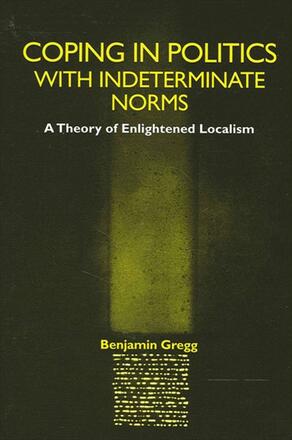
Coping in Politics with Indeterminate Norms
A Theory of Enlightened Localism
Alternative formats available from:
Argues that social equity and legal justice are possible even in the absence of universal political norms.
Description
Are social equity, political fairness, and legal justice possible within a liberal political order, even if norms are indeterminate? The modern world is distinguished by both its complexity and the absence of a single theory, principle, or tradition with the authority to constrain us. Coping in Politics with Indeterminate Norms demonstrates that while moral validity is relative rather than absolute, and cultural meanings local rather than universal, social integration and democratic politics are still attainable goals. Benjamin Gregg fashions a theory that combines proceduralism with pragmatism—an "enlightened localism"—that adjudicates among competing normative commitments and interpretations using local criteria in the absence of universal standards. The theory is applied to three empirical domains: social criticism, public policy, and law and morality.
Benjamin Gregg is Associate Professor of Government at The University of Texas at Austin and the author of Thick Moralities, Thin Politics: Social Integration Across Communities of Belief.